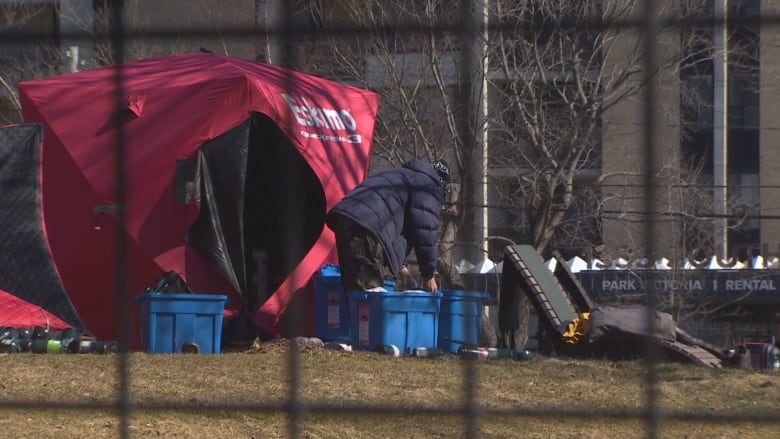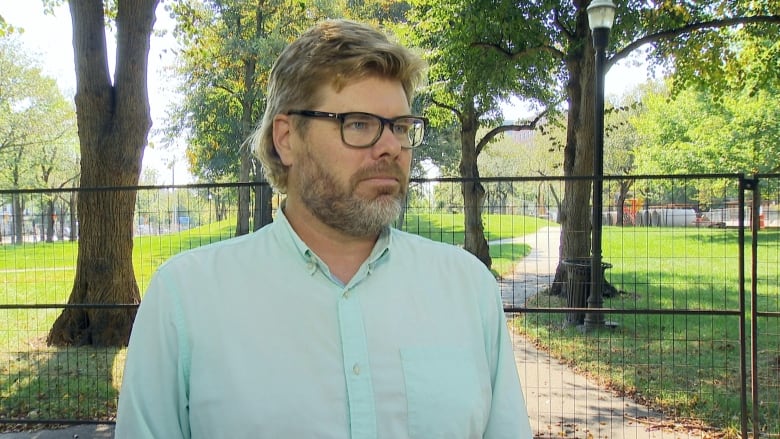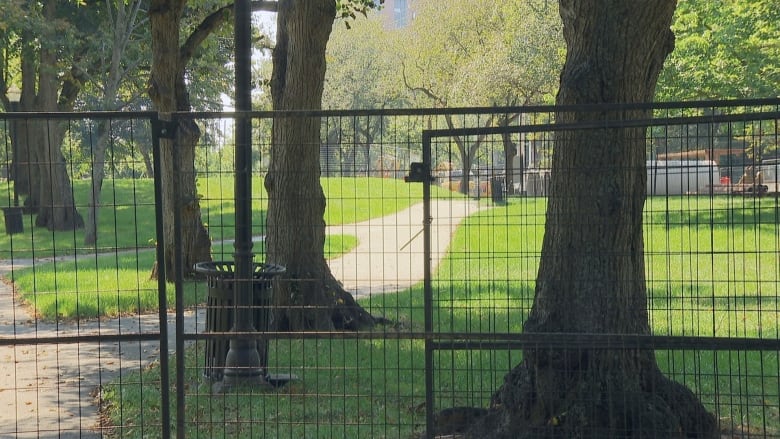Halifax said a homeless camp contaminated the soil of a public park. A report shows that's not true
City staff found out in April homeless camps at 2 sites had not impacted park soil

When the Halifax Regional Municipality closed homeless encampments in two downtown parks earlier this year, it said extensive remediation would be needed because people living there had damaged thesites, with contamination spreading as deep as the soil in at least one of the locations.
But a professional assessment the city received in April about the condition of Victoria Park and Grand Paradeshowed no soil contamination that could be blamed on the people who sheltered at those sites.
"It was false, it was wrong, and they didn't correct it," said David Wallbridge, a Halifax resident who works near Victoria Park.
The municipality closed thesites at Victoria Park and Grand Parade through February and March, saying themove was needed because the province had enough shelter spaces for people and the camps were no longer healthy or safe spaces.
Multiple public releases said human waste, drug paraphernalia and garbage were found on the sites. In reference to Victoria Park, one statement said remediation would "take several months due to the heavy use of the site as an encampment for a relatively long period of time."
The release did not say what that remediation would entail, only that it would involve the soil.

Various parks and recreation staff repeated the need for soil remediationin early March when Wallbridgeinquired further about the damage at Victoria Park.
"Given the heavy use of the park over the past year much of the park will need to be resodded given the damage to the soil with various contaminants," wrotecommunity developer Kate Moon in an email, which Wallbridgeshared with CBC News.
In another email to Wallbridge, Maggie MacDonald, executive director of parks and recreation, wrote: "Resodding or hydroseeding of much of Victoria Park is required due to people sheltering there, in varying numbers, for upwards of two years. The top layer of soil through most of the park has to be removed in order to do so."
Landscaping work took place in recent months, and new soil and grass can now be seen through the fence.
Wallbridge finally received the soil report last week after filing a freedom of information request.
The April 19 report from an environmental engineer with Dartmouth-based Englobe Corp. to the parks department about Victoria Park said based ona soil test and visual observations, they "did not identify any impacts at the park attributable to the former tent encampment."
"Unfortunately, it really seems like that had the effect of perpetuating a stereotype that the people who were homeless who had to take shelter here were somehow dirty or contaminated the area and it just wasn't true at all," Wallbridge said.
The report did find higher levels of elements like arsenic, lead and manganese in the soil, but said they are "typical" of material found on sites throughout the peninsula. The engineer said HRM could take steps to protect residents from these elements.
Themunicipality told CBCNews the soil testing in Grand Parade showed the same thing.
Spokesperson Ryan Nearing said in an email this week that"extensive remediation" was still required because of the clear evidence of drug paraphernalia, human waste, a rodent infestation, and extensive damage to the grass.
He said municipal staff decided to completely cap both sites with new soil and seed "based on testing results that showed contaminants unrelated to the encampment."
Nearing did not say whyHRM didn't release the report's findings tothe public.
The municipality completed similar work atMeagher Park off Chebucto Road, which has been closed for more than two years since the city shut down a non-designated homeless encampment there. HRM did not test the soil in Meagher Park.
HRM said the total cost for work at all three sites was $238,522. Victoria Park ran the highest at about $172,680, followed byMeagher Park with $31,577, and Grand Parade with $24,460.

Wallbridge said fundingsome cleanup is expectedand taking the opportunity to improve public parks is fine "but they should be honest" about why such a large amount of public money was being spent.
Allie Higgins, who lives near Victoria Park, said she thoughtthe fencing and months of work were because of damage specifically from the homeless camp.
She said the municipality's decision to not clarify that camp residents didn't contaminate it is "not fair."
"They just wanted to make it seem like they did the right thing,I think, by putting all this work into it. Make it look like they're helping things, but it feels like a facade," Higgins said.
Grand Parade has reopened, but HRM would not give any timelines for when Victoria Park or Meagher Park can be used by the public again.
Corrections
- An earlier version of this story said the Halifax Regional Municipality said people living in two homeless encampments had damaged park soil. In fact, the municipality said people living in one encampment had damaged park soil, although it ordered soil testing for both sites.Sep 18, 2024 9:52 PM AT
With files from Elizabeth Chiu












_(720p).jpg)


 OFFICIAL HD MUSIC VIDEO.jpg)
.jpg)



























































































